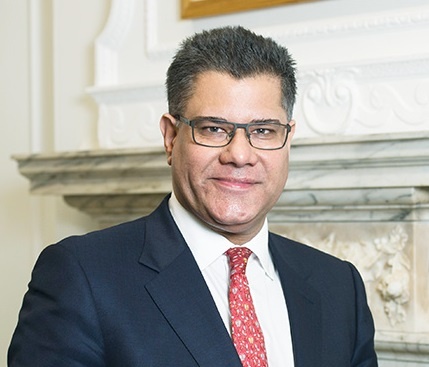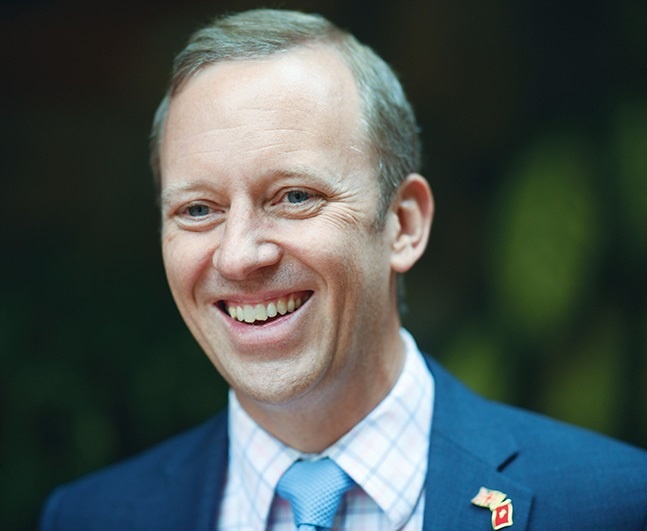Global climate efforts now underway
 |
| Vietnam is at the forefront of spreading awareness of protecting the environment, Photo: Shutterstock |
Last November, Vietnam impressed the international community through its strong commitment on net-zero targets in reducing greenhouse gas (GHG) emissions.
“Although we are a developing country that started industrialisation only over three decades ago, Vietnam will capitalise on its advantage in renewable energy and take stronger measures to reduce GHG emissions. To this end, we will make use of our own domestic resources along with the cooperation and support of the international community in terms of finance and technology, including through mechanisms under the Paris Agreement, in order to achieve net-zero emissions by 2050,” stated Prime Minister Pham Minh Chinh at the COP26 climate summit held in the United Kingdom.
Also at COP26, Vietnam participated in the Global Methane Pledge initiative which aims to reduce global methane emissions by at least 30 per cent by 2030; the Glasgow Leaders’ Declaration on Forests and Land Use; the Global Coal to Clean Power Transition Statement; and the Global Climate Change Adaptation Alliance.
These strong messages would mean that Vietnam will have to gradually revise its strategy on energy development, including the development of coal-fired power plants, projects on manufacturing steel and cement, and many other projects that have big GHG emissions as they are using fossil fuel.
However, Vietnam’s commitments would mean more opportunities for the nation to develop renewable energy such as solar energy, wind power, geothermal energy, biomass and hydroelectric power.
On-trend strategy
“The implementation of Vietnam’s commitments, especially the commitment on net-zero targets in reducing GHG emissions by 2050, is inevitable and irreversible. The timely deployment of these commitments will bring huge and long-term benefits. Vietnam needs to take advantage of this opportunity to conduct economic restructuring with a low-carbon direction,” stated the Government Office released two weeks ago.
Vietnam earlier reiterated the threat of rising sea levels due to climate change, especially in the most vulnerable regions in its southern region, which is home to more than 20 million people. The region also produces over half the country’s rice harvest. A significant amount of land is periodically affected by flooding, resulting in damage to crops and people’s livelihoods.
Ho Chi Minh City itself is regularly prone to flooding. The government’s plan is to develop the city as a financial centre and a smart city by 2025. A report by McKinsey, however, stated that the annual flooding in the city may cost about $1.3 billion a year, mostly from damage to real estate. This trend is likely to increase as costs related to floods may increase faster than economic activity.
Vietnam has plans to increase ecological farming and adopt new technologies. The Ministry of Planning and Investment is also developing a master plan for the Mekong Delta region for the 2021-2030 period with a vision for 2050.
“Political statements at COP26 have shown Vietnam’s position and responsibility in solving serious global challenges and at the same time helping our country overcome serious challenges posed by climate change today,” said Minister of Natural Resources and Environment Tran Hong Ha.
In a joint letter to PM Chinh in early December, 18 ambassadors, the World Bank, and the UN said they are committed to supporting Vietnam’s new climate commitments with an improved offer of financial and technical assistance. They also stand ready to assist Vietnam in mobilising international resources, including increased public and private investment, official development assistance (ODA), and concessional loans to reduce the cost for Vietnam – besides sharing expertise, knowledge and technology, and supporting the country in improving regulations to woo high-quality investment.
The Asian Development Bank (ADB) said it is ready to assist Vietnam in its journey. It has signed an MoU with Vietnam’s oil and gas group PetroVietnam on establishing a strategic partnership in the 2021–2024 period to promote clean and renewable energy development as well as to achieve PetroVietnam’s targets in the green energy transition.
The MoU establishes the foundation for cooperation activities between PetroVietnam and the ADB such as strategy and roadmap for green energy transition; carbon capture, utilisation and storage; hydrogen development; and offshore wind energy development.
“With expertise and experience, particularly in carbon capture, use and storage, hydrogen energy, offshore wind energy, and energy efficiency, the ADB will support PetroVietnam in the green energy transition towards the target of emissions reduction that Vietnam has committed to,” said PetroVietnam’s deputy general director Pham Tien Dung.
| At a meeting held a couple of weeks ago by the National Steering Committee on implementing Vietnam’s commitments at COP26, Prime Minister Pham Minh Chinh ordered ministries and sectors to soon complete the formulation of their own action plans on deploying Vietnam’s commitments. The Ministry of Natural Resources and Environment (MoNRE) shall collect all the plans’ information and then build up the country’s overall action plan on this. In the short term, efforts must be made to deploy eight key tasks, including: - Shifting from fossil energy to clean and green energy sources; - Reducing greenhouse gas emissions in sectors; - Decreasing emissions of methane, especially in agricultural production and waste treatment; - Encouraging research and developing the use of electric vehicles; - Maintaining forests in a suitable manner, while boosting the plantation of new forests in order to absorb carbon; - Researching, producing, and sustainably using environmentally-friendly building materials in line with green and sustainable development; - Boosting and renewing communications activities so that society and the business community can work with the government in implementing Vietnam’s commitment at COP26; and - Beefing up digital transformation in service of climate change response. The prime minister also ordered ministries to review, supplement, and improve regulations and laws, and to formulate strategies, plans, mechanisms, and policies in order to attract financial, high technological, and human resources as well as governance experience to effectively implement advanced solutions. The ministries were also required to propose specific programmes, projects, and demands for capital, technology transfer, and human resources in order to deploy Vietnam’s commitments at COP26. All of these must be sent to the MoNRE which will gather all information and then report to the national steering committee and organise meetings with international organisations and partners. Action plans of ministries and sectors must be used as inputs for the formulation of a programme on implementing Vietnam’s commitment at COP26 which must be submitted to the national steering committee in Q2 before being adopted by an authorised agency. |
Supporting institutions
Last November, Standard Chartered Bank Vietnam committed MoUs worth $8.5 billion in sustainable financing for T&T Group, Geleximco Group, and Van Lang Investment and Education Management Corporation to support their sustainability goals. Under the MoUs, Standard Chartered Bank Vietnam will arrange financing for T&T Group’s environment, waste treatment, liquefied natural gas-fired power plants and renewable energy projects; Geleximco’s paper, pulp and afforestation, tourism, and seaport projects; and Van Lang’s construction of a green university campus.
Under its Country Programme Document for Vietnam 2022-2026 released last month, the United Nations Development Programme (UNDP) said it will support the Vietnamese government, the private sector, and financial institutions to design and implement low-carbon development, circular economy, and environmental protection.
“In support of a more decarbonised economy, resources will be deployed to develop and implement energy-efficient business models, expanding the use of clean and renewable energy,” read the document.
The UNDP will demonstrate scalable solutions for deforestation-free cash crops, green agriculture supply chains, reduction of GHG emissions and de-risked low carbon investments for industrial processes. To meet the transparency requirements of the Paris Agreement, the UNDP will support partners to strengthen systems and build capacities and tools to measure and report on emissions, mitigation, adaptation and climate financing.
Underlining climate finance at a recent workshop sharing outcomes of COP26, Caitlin Wiesen, UNDP resident representative in Vietnam, said that to mobilise large-scale climate finance to deliver impactful outcomes, Vietnam would do well to introduce a climate finance strategy to enable effective coordination for a combination and mix of public finance, private investment, ODA, and loans.
The financial strategy would aim to mobilise finance to invest in strategic areas that require large upfront investments. This includes infrastructure that enables renewable energy, the transition of the energy sector (phasing down coal, phasing out fossil fuel subsidies), and transport electrification.
“In setting priorities, it will be important to strike a balance between climate change mitigation and adaptation. International finance should not fully shift to mitigation, and there must be good balance and allocation of resources to climate adaptation,” Wiesen said.
| Alok Sharma - COP26 President
Every fraction of a degree makes a difference. An average global temperature rise of 2oC, compared to 1.5oC, would see hundreds of millions more people affected, and twice as many plants and three times as many insect species losing vast swathes of their habitat. We know that climate change is already damaging the livelihoods of millions in the Mekong Delta region of Vietnam. In Vietnam, the potential for renewable energy, both solar and wind, offers a realistic alternative to building new coal-fired power, and a way to keep attracting high-tech investment. Our second goal is to protect people and nature from the worst effects of climate change. The climate crisis is already with us and we must act on the very real need for flood defences, warning systems and other vital efforts to minimise, avert and address the loss and damage caused by climate change. I know how the extreme weather in Central Vietnam in 2020 caused devastating floods, and we must help communities to increase the resilience of their housing and infrastructure. Gareth Ward - British Ambassador to Vietnam
Energy accounts for nearly 70 per cent of the greenhouse gas emissions in Vietnam, and so should be the focus of attention. We are working with wider stakeholders to support the acceleration of energy transition in Vietnam through the COP26 Energy Transition Council. Since the first council meeting in March 2021, we have been working to roll out short-term interventions. Our longer-term support covers three main workstreams – the shift away from coal, financing the transition, and power grid improvement. It is impressive to see the growth of Vietnam’s solar and wind sectors in recent years. With the enormous clean energy potential, we hope to see Vietnam adopt an ambitious new Power Development Plan that fully reflects this. We hope the plan will be in line with Vietnam’s ambition to phase out coal and more significant incentives for renewable energy investment. The UK and other donors are ready to deliver technical support through our Rapid Response Facility to support Vietnam in this direction. The UK has been supporting Vietnam through official development assistance programmes to tackle climate change in the past few years. Bilateral support ranges from promoting green finance and energy efficiency (the ASEAN Low Carbon Energy programme), increasing urban resilience (the urban resilience trust fund and Global Future cities programme), accelerating green finance to support green buildings (the Market Accelerator for green construction) and preserving biodiversity (the Biodiversity landscape fund and Blue Planet fund). The Private Infrastructure Development Group, through Infraco Asia, has also invested in a successful solar power project which has created over 1,300 jobs. |
What the stars mean:
★ Poor ★ ★ Promising ★★★ Good ★★★★ Very good ★★★★★ Exceptional
Related Contents
Latest News
More News
- Bac Ai Pumped Storage Hydropower Plant to enter peak construction phase (January 27, 2026 | 08:00)
- ASEAN could scale up sustainable aviation fuel by 2050 (January 24, 2026 | 10:19)
- 64,000 hectares of sea allocated for offshore wind surveys (January 22, 2026 | 20:23)
- EVN secures financing for Quang Trach II LNG power plant (January 17, 2026 | 15:55)
- PC1 teams up with DENZAI on regional wind projects (January 16, 2026 | 21:18)
- Innovation and ESG practices drive green transition in the digital era (January 16, 2026 | 16:51)
- Bac Ai hydropower works stay on track despite holiday period (January 16, 2026 | 16:19)
- Fugro extends MoU with PTSC G&S to support offshore wind growth (January 14, 2026 | 15:59)
- Pacifico Energy starts commercial operations at Sunpro Wind Farm in Mekong Delta (January 12, 2026 | 14:01)
- Honda launches electric two-wheeler, expands charging infrastructure (January 12, 2026 | 14:00)



 Tag:
Tag:



















 Mobile Version
Mobile Version